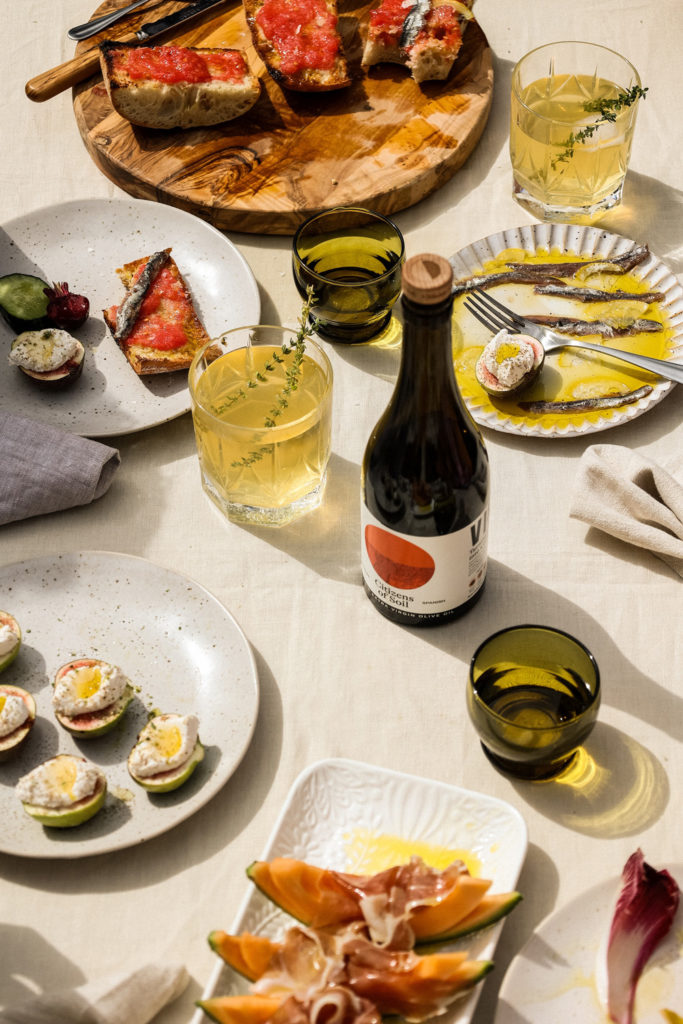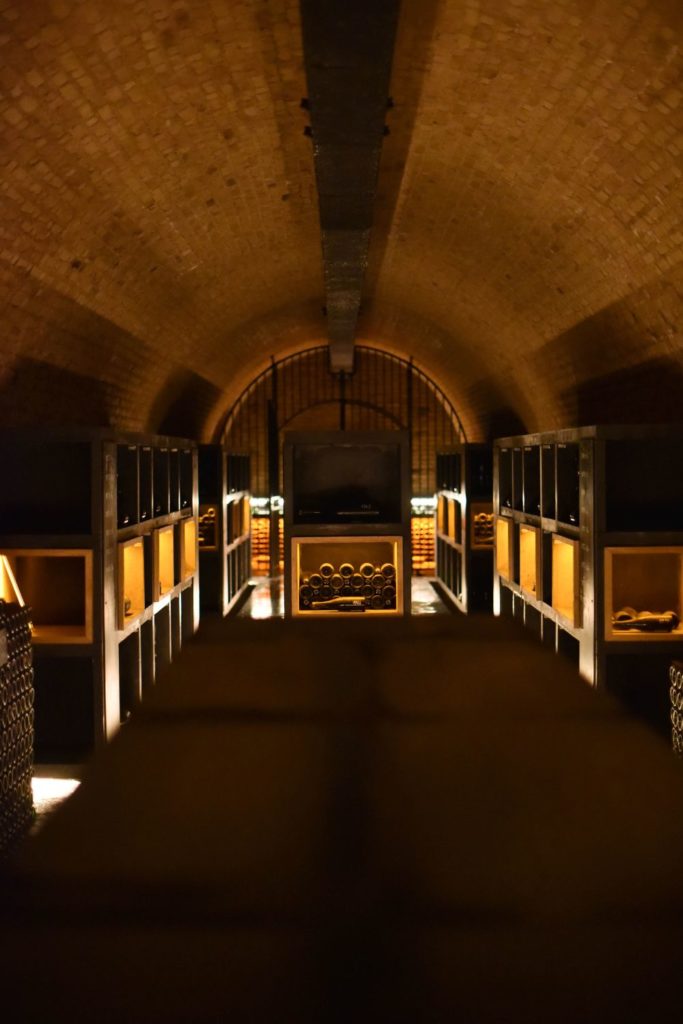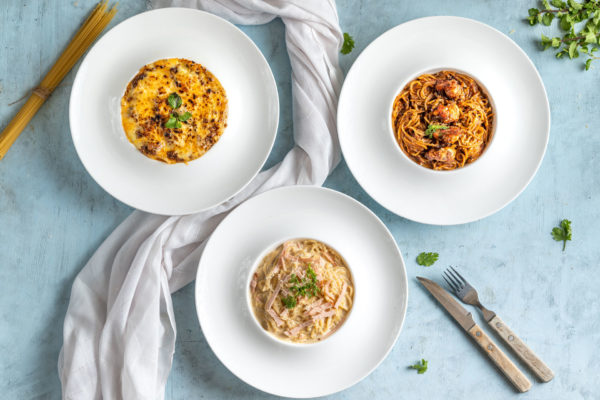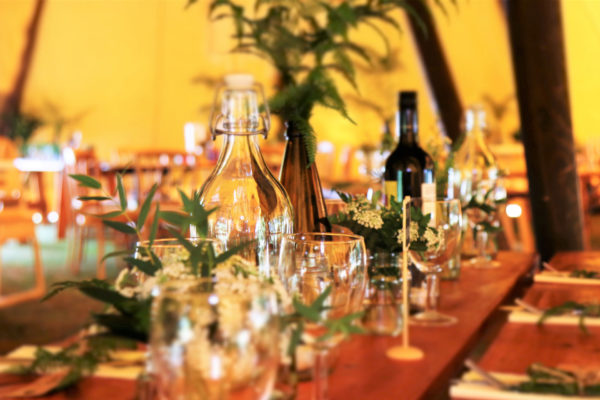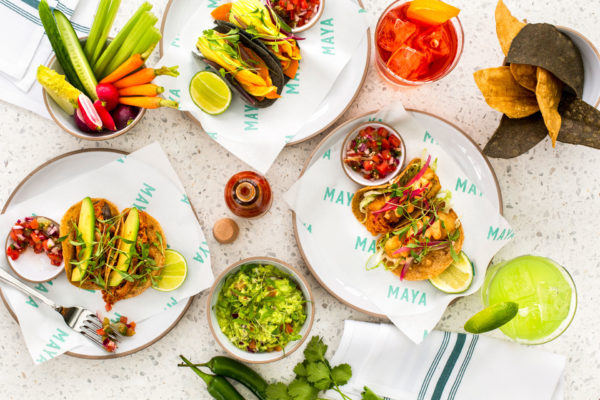The UK’s Best Authentically Farm To Table Restaurants
By Ellie Smith
3 months ago
Meet the chefs championing local and sustainable farming
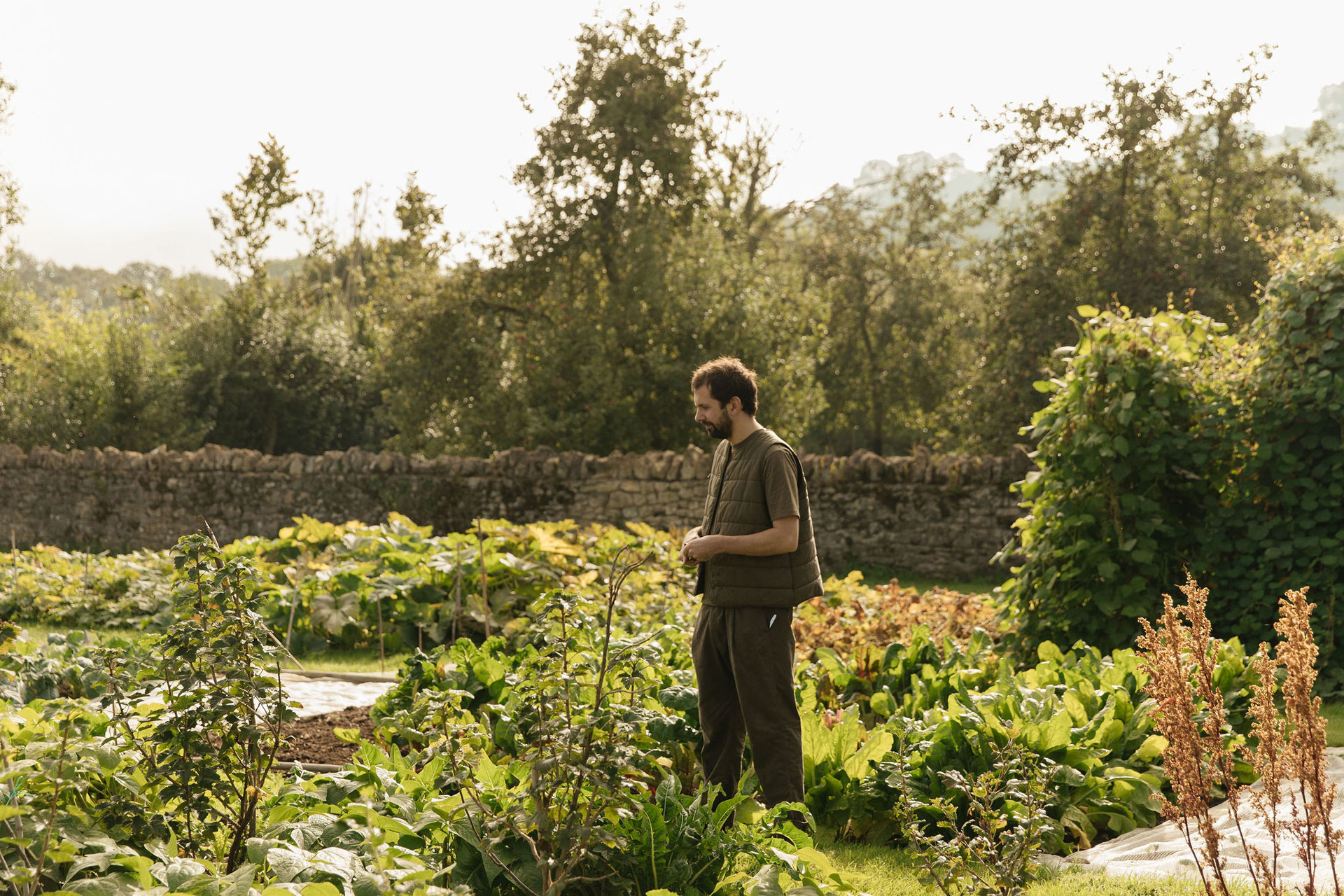
Osip
The farm to table movement is having a moment. We’re more interested in where our food comes from than ever before – and restaurants have taken note. Produce-led, seasonal menus are on the up, with many UK eateries favouring small-scale farming over big supply chains. Not only is this hugely beneficial to the environment, food that travels minimal distance tastes fresher and more flavoursome. With that in mind, we’ve rounded up the UK’s best authentically farm to table restaurants, from self-sufficient farms in Cornwall to cosy bistros in Clapham.
Farm To Table Restaurants To Visit Now
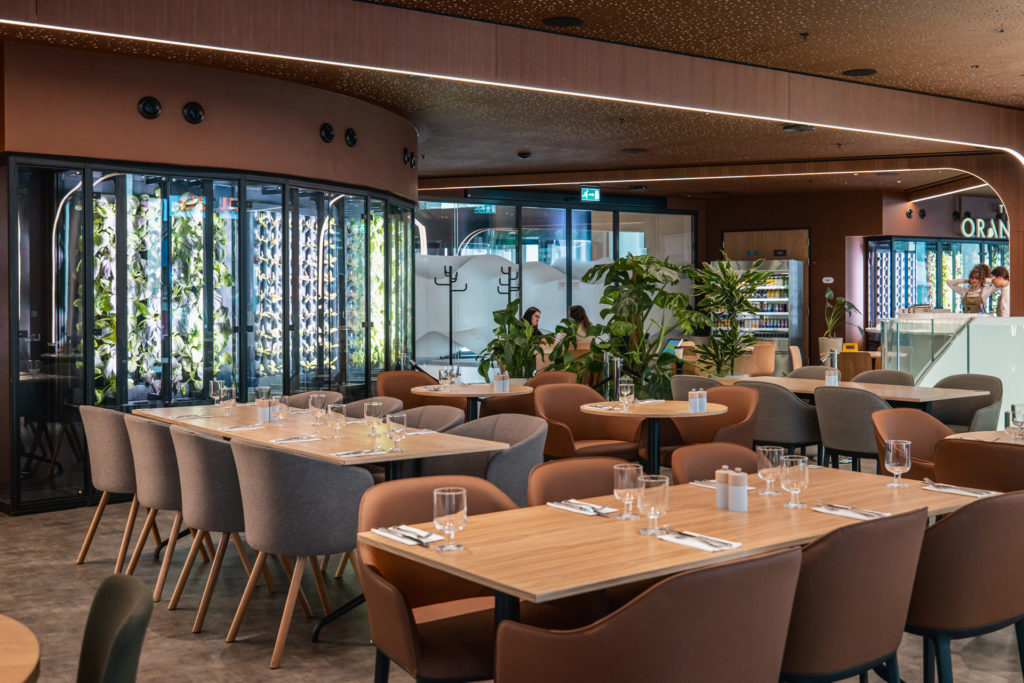
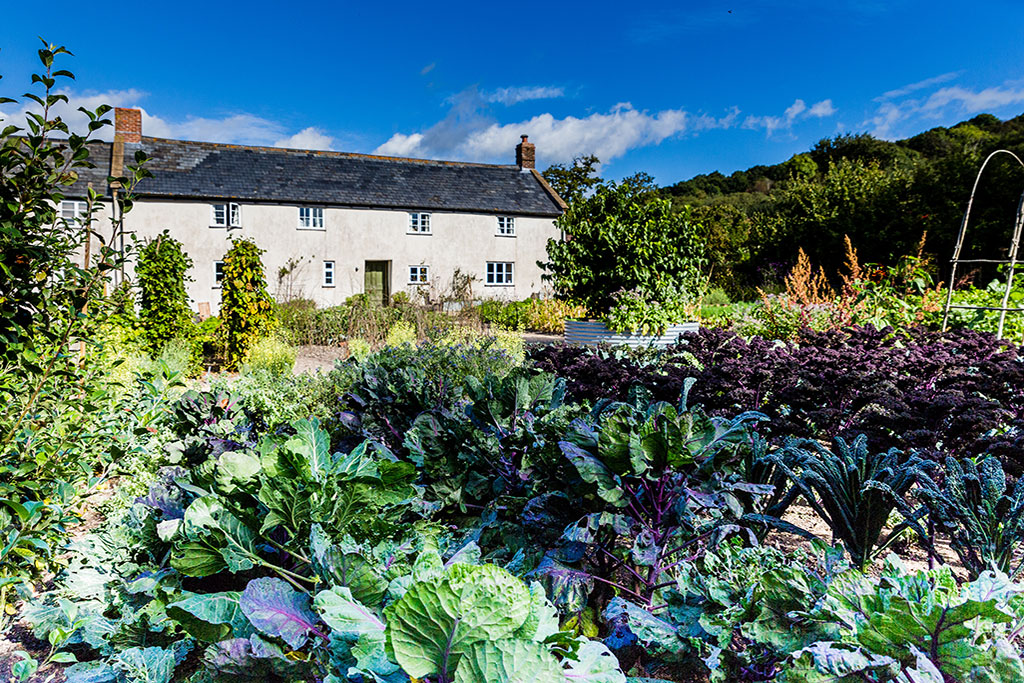
River Cottage, Axminster
Seasonal, nose-to-tail, farm to table dining has been Hugh Fearnley-Whittingstall’s mantra since opening River Cottage Canteen in Axminster all the way back in 2007. Since then his empire has expanded a great deal – there are now River Cottage restaurants dotted around the country, including their newest site at Bedfordshire’s Whipsnade Zoo. All use produce straight from the farm HQ, with particular focus on fresh vegetable dishes. Delicious food is a given.
Park Farm, Trinity Hill Rd, Axminster EX13 8TB; rivercottage.net
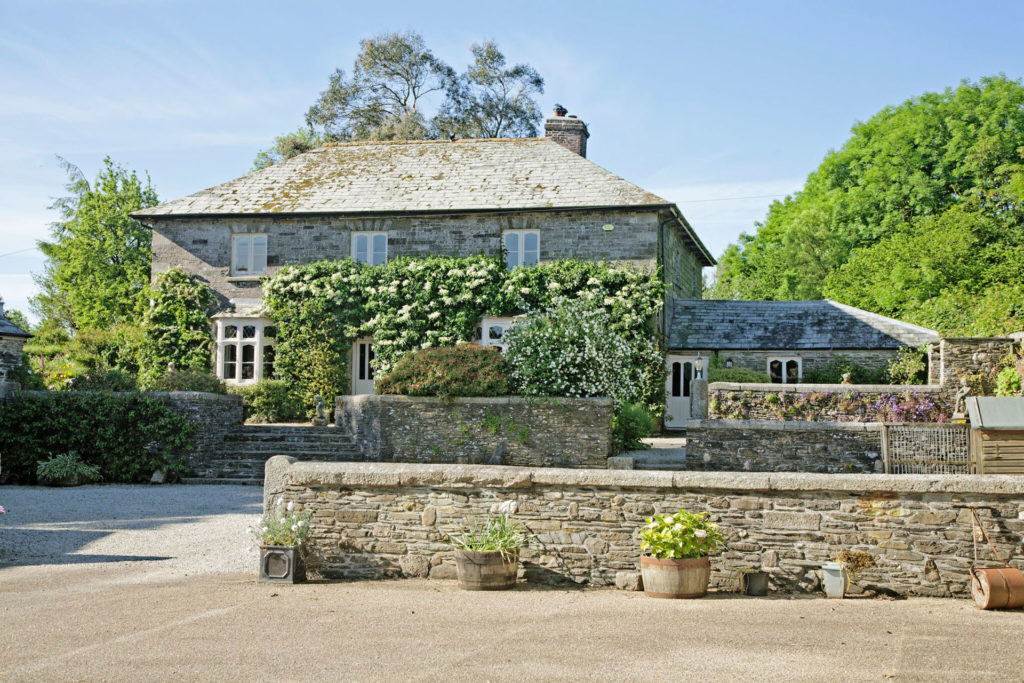
Coombeshead Farm, Cornwall
When it comes to farm to table restaurants, it doesn’t get much more authentic than Coombeshead Farm. Set across 66 acres of Cornish countryside, Coombeshead is a self-sufficient entity, complete with a beautiful farm, guesthouse and restaurant, headed up by chefs Tom Adams and April Bloomfield. There’s also a wine cellar featuring vintages from Tom’s brother’s micro-vineyard in the South of France, a beehive, and a bakery run by Ben Glazer. Food is served in the feasting barn, which offers an ever-changing menu dependent on what’s growing and ready from the smokehouse and pickling rooms. For dinner, dishes could include fresh cheese and preserved courgette, onion broth & miso, pheasant sausage and elderberry, josterberry sorbet – everything produced on-site, of course. Come breakfast, guests can tuck into fresh eggs with griddled home-cured pork belly, bacon and sausage. Coombeshead is a true gem.
Lewannick, Launceston PL15 7QQ; coombesheadfarm.co.uk
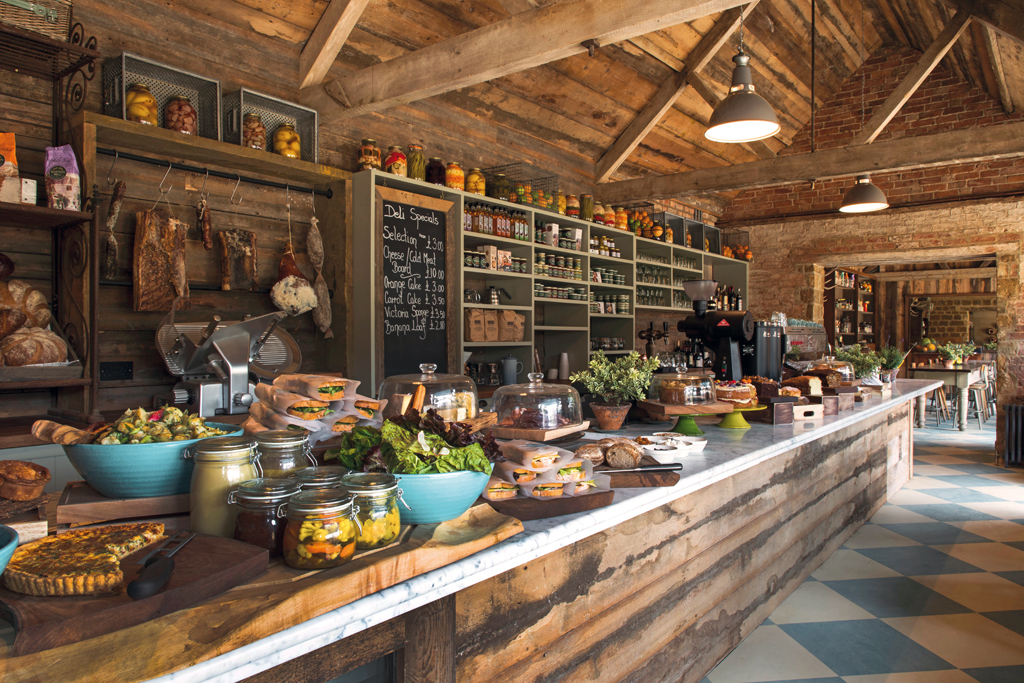
Soho Farmhouse, the Cotswolds
Popular with royals and A-listers alike, you’ll most likely have seen Soho Farmhouse pop up on your Instagram feed (just look out for the free-standing outdoor copper bathtubs). What was once a derelict farm has been transformed into an 100-acre fairytale estate, complete with timber cabins, a boating lake, spa and numerous restaurants: a picture-perfect countryside utopia. The farm deli offers local cheeses and homemade pickles which guests can enjoy from the comfort of their own cabins, while the restaurants serve a mixture of cuisines, all using organic and local ingredients. With its log fire and comfy sofas, the main barn is an idyllic dining spot, serving up dishes like Loch Duart salmon, Springfield brick chicken and cheeseburgers with homemade bacon alongside freshly grown vegetables.
Great Tew, Chipping Norton OX7 4JS; sohofarmhouse.com
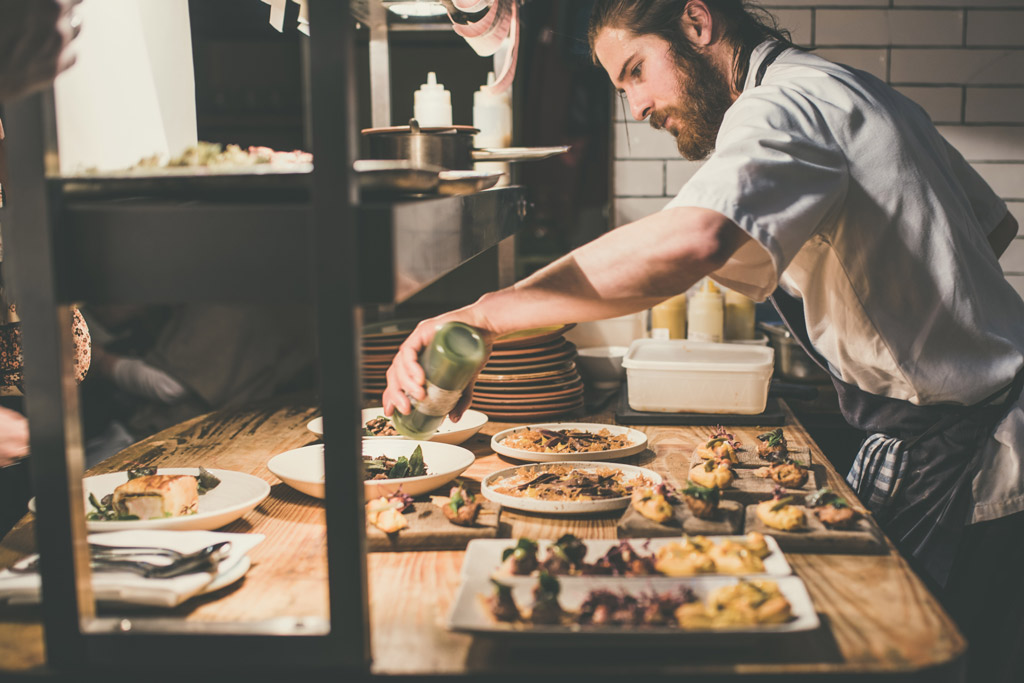 Rabbit, Chelsea
Rabbit, ChelseaRabbit, London
Born on a vineyard to two chefs, the Gladwin brothers were destined for the world of restaurants. Following a childhood of eating heartily and driving tractors on the family’s farm in Nutbourne, Sussex, the three boys went their separate ways – Richard became a restaurant manager and Oliver a chef, while the youngest, Gregory, remained true to his roots, working as a farmer.
Turns out, the manager-chef-farmer trio lends itself pretty well to the farm to table culinary format. The brothers’ now have five restaurants under their belt, one being Rabbit: a cosy, rustic spot on the King’s Road. All food is based around their local and wild ethos, using sustainable livestock from the family’s Nutbourne farm, Ashurst Wood. The menu changes regularly, but dishes tend to come as small plates, perfect for a tapas-style sharing meal. You could be eating Sussex beef tartare with star anise pickled carrot, venison cigars with harissa and pickled mustard seeds or aged chorizo with labneh – whatever is on the cards for that day, you can guarantee it will be fresh, authentic and delicious. The Gladwins are industry leaders in the farm to table world – as Oliver tells us: ‘I can speak to a grower today and get the beetroots up to the restaurant tomorrow, they’ll be out of the ground in 20 minutes.’
172 King’s Rd, London SW3 4UP; rabbit-restaurant.com
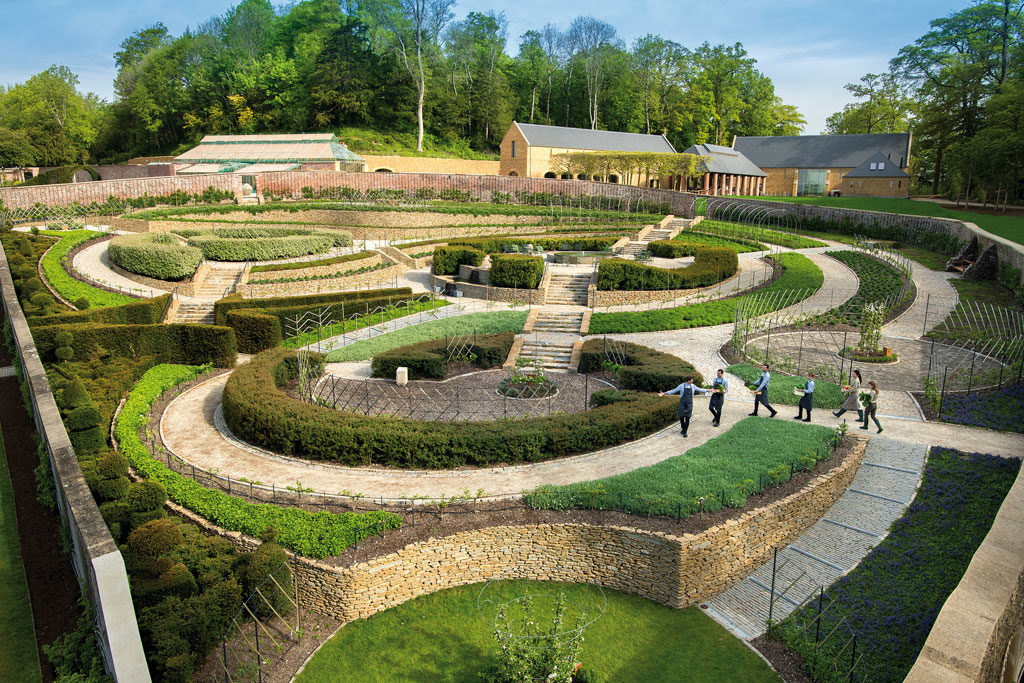 The Newt, Somerset
The Newt, SomersetThe Newt in Somerset
After two centuries under Hobhouse family ownership, the Hadspen House estate was taken over by South African billionaire Koos Bekker and his wife Karen Roos, the power players behind famed Cape Winelands vineyard, hotel and garden Babylonstoren. They spent six years transforming the Grade II listed property into a hotel called The Newt, complete with a state-of-the-art cider mill and the largest orchard of standard apple trees planted in a century. The Botanical Rooms serve as the hotel’s main restaurant, offering a small plates-style seasonal menu of whole meats and vegetables sourced from the kitchen gardens. There’s also a glass-walled Garden Café overlooking the grounds, orchards and countryside, alongside a Cyder Bar serving apple juices and ciders pressed fresh on the estate.
A359, Hadspen, Bruton BA7 7NG; thenewtinsomerset.com
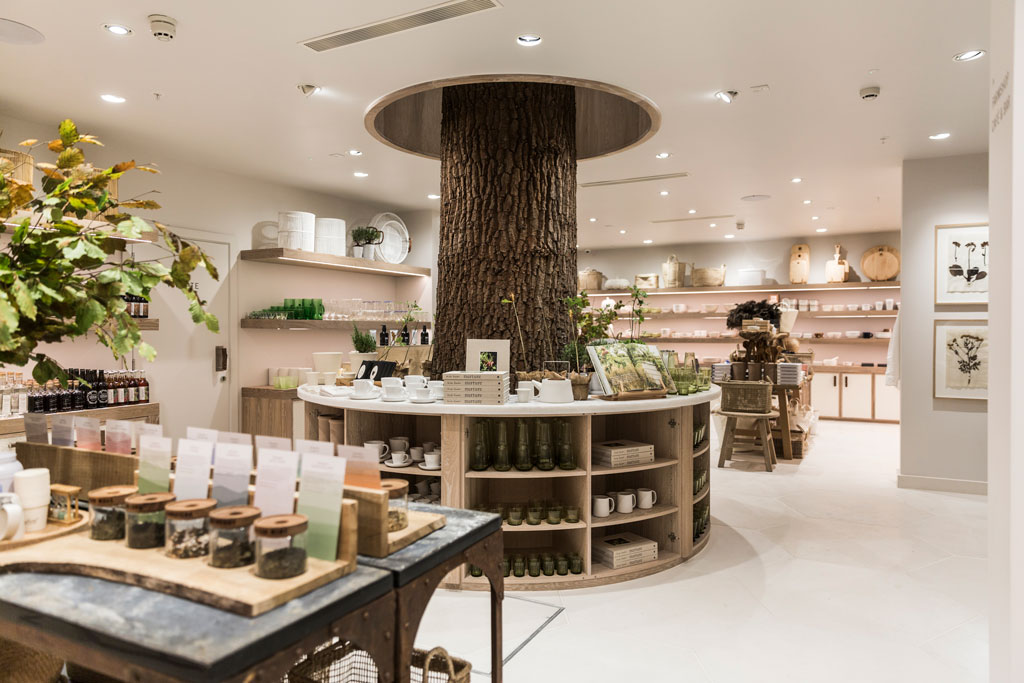
Daylesford Brompton Cross, London
Motivated by a desire to feed her children better, Lady Carole Bamford set out to turn her family’s farmland into a sustainable business. Little did she know, 40 years later Daylesford would stand as one of the most sustainable farms in the UK, supplying fresh, organic produce to restaurants across the country. Their most recent London venture, Brompton Cross, offers up a mixture of truly organic dishes using ingredients grown on the farm, from green pastured beef burgers to sourdough pizzas to brightly coloured salad bowls. To guarantee the freshest of food, produce is picked only when perfectly ripe, and taken straight to the chefs in the kitchen. A leader in the eco-friendly food movement, Daylesford Brompton Cross celebrates a zero-waste policy, ensuring packaging is recyclable, reusable or compostable, and no food is thrown away. Any extra food is sent to The Felix Project, who go on to redistribute it to those in need around London, while straws are made from wheat stalks and customers are encouraged to bring their own reusable cups. Fitting, then, that the three-storey space is designed around a huge oak tree, which was saved by the Bamford family and transformed into a piece of natural art.
76-82 Sloane Ave, Brompton Rd, London SW3 3DZ; daylesford.com
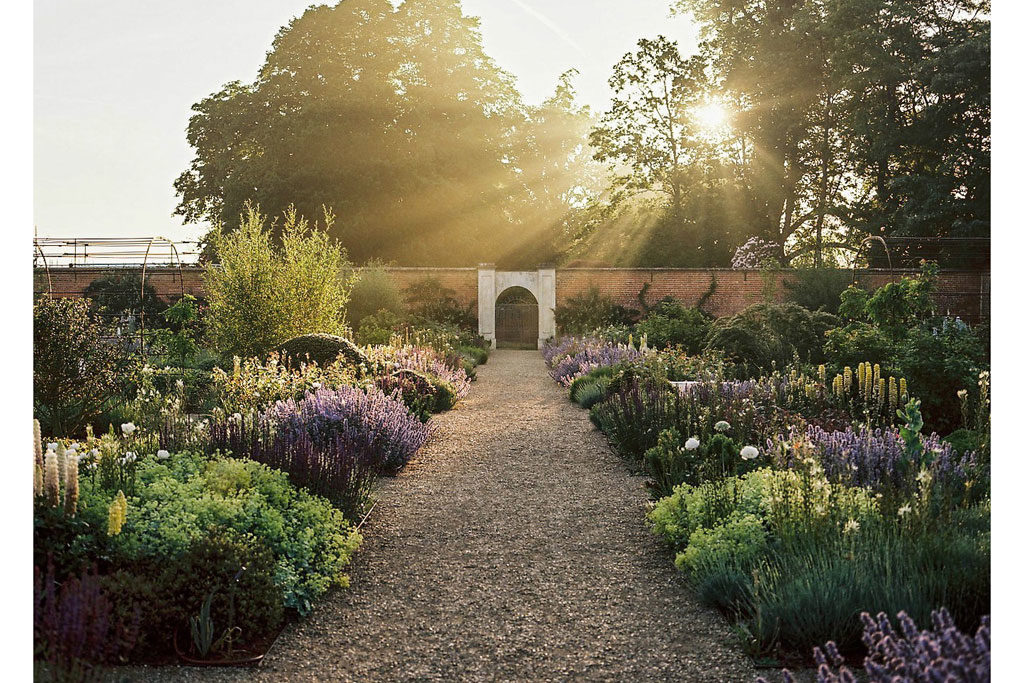
Heckfield Place, Hampshire
A Georgian family home rewoven into a luxury country hotel, Heckfield Place in Hampshire has its own biodynamic farm, providing fresh vegetables, fruit, flowers, herbs and honey to its two on-site restaurants, Marle and Hearth. Run by culinary director Skye Gyngell, these are both glorious root-to-table eateries centred around simplicity and seasonality. Head to Marle for a stellar Sunday lunch featuring dishes like lamb saddle with nettles and wild garlic, and leek and ricotta tart. Hearth, meanwhile, serves an a la carte menu which includes plates like tagliatelle with walnuts, and grilled mackerel with charred spring onion.
Heckfield Pl, Heckfield, Hook RG27 0LD; heckfieldplace.com
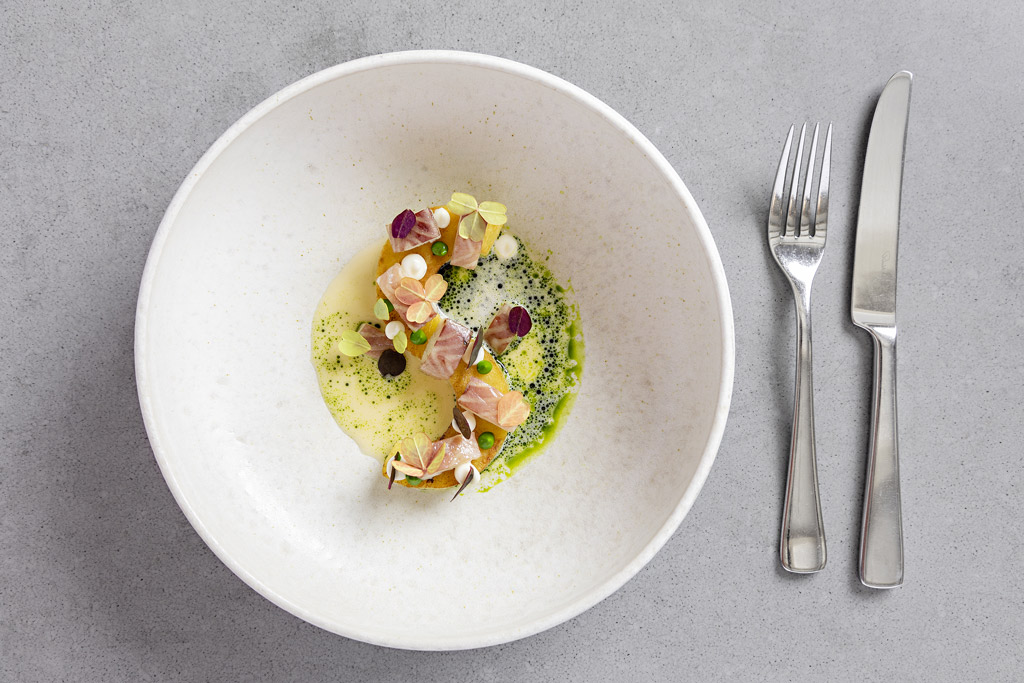
Rogan & Co, The Lake District
Sister restaurant of the much-acclaimed L’Enclume, Rogan & Co gained its first Michelin star in 2018 under the leadership of head chef Tom Barnes. As with all of Simon Rogan’s restaurants, most ingredients for the menu come from Simon’s own farm in the Cartmel Valley, alongside contributions from local Lake District artisan suppliers. ‘It’s a case of growing the perfect carrot rather than cooking it perfectly,’ says Simon. ‘The produce we’ve got gives us inspiration. It is the driving force and we’re not tampering with it. We’re taking an ingredient and cooking it simply to maximise the flavour.’ The team has been working towards zero waste for years and are nearing the finish line – with three new composters meaning all food waste is recycled.
Rogan & Co has a more relaxed, neighbourhood feel than its better known sibling. Dishes include fresh cuts of meat alongside homegrown vegetables, such as Cartmel Valley pheasant with roasted parsnip and elderberry; aged short rib of beef with creamed potato and bone marrow; and roasted wild duck with Riesling cabbage and quince – their Sunday roast is particularly good.
Devonshire House, Devonshire Square, Cartmel, Grange-over-Sands LA11 6QD; roganandco.co.uk
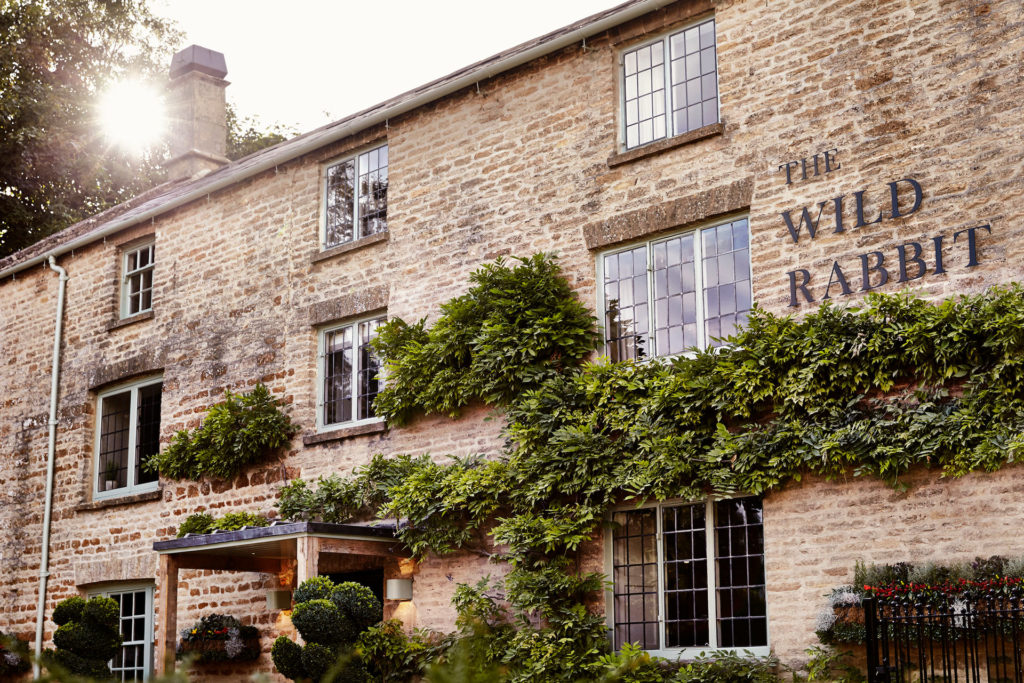
The Wild Rabbit, Kingham
Daylesford Organic’s very own restaurant, The Wild Rabbit, is just a stone’s throw from the brand’s beloved Cotswold farm shop. The restaurant, helmed by head chef Nathan Eades, uses organic ingredients from Daylesford Farm, picked fresh each morning, alongside foraged and locally sourced produce. The menu changes according to what’s in season and available, but you can expect to enjoy curried Jerusalem artichoke velouté, Cornish Pollock with salt baked carrots and rice pudding soufflé. Wines are hand-picked from small artisan and independent wineries all over the world.
Church St, Kingham, Chipping Norton OX7 6YA; daylesford.com
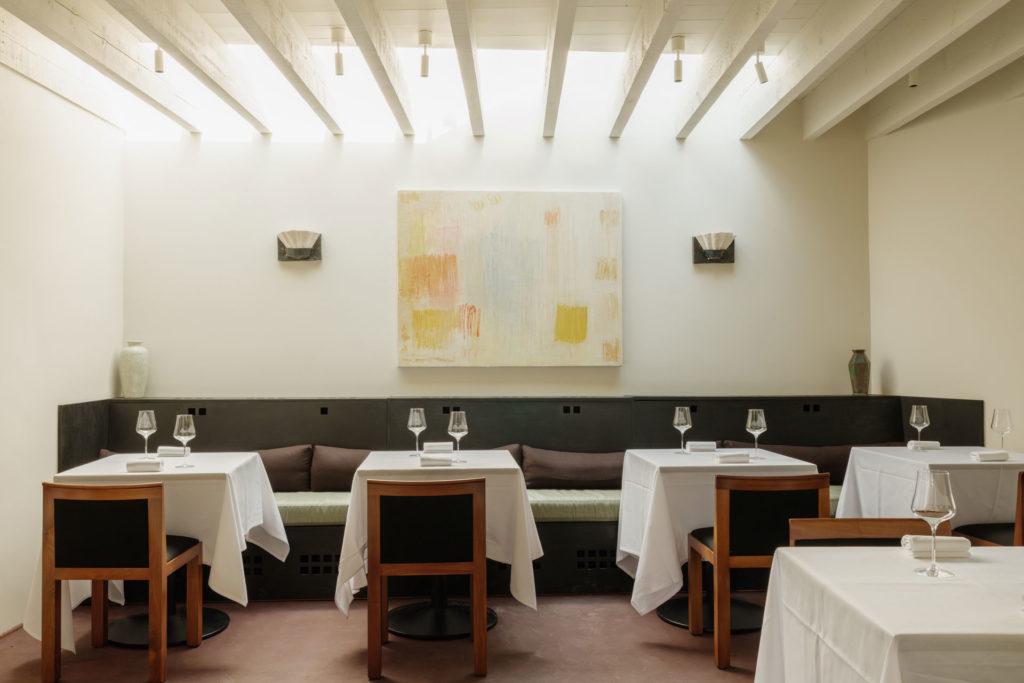
Osip, Somerset
Restaurant-with-rooms Osip initially opened in 2019 within the Number One Bruton hotel, going on to secure a Michelin Star under the leadership of Merlin Labron-Johnson. Last year, it reopened as a standalone restaurant within an 18th-century building near North Brewham which was previously owned by Hauser & Wirth. The new eatery serves a hyper-seasonal menu using produce from farms nearby: think herby broths, beetroot tacos and the return of Labron-Johnson’s signature cheese course. Alongside this, there are wines from small-scale growers and ciders including Osip’s own, made with apples native to Somerset.
25 Kingsettle Hill, Hardway, Bruton BA10 0LN, osiprestaurant.com
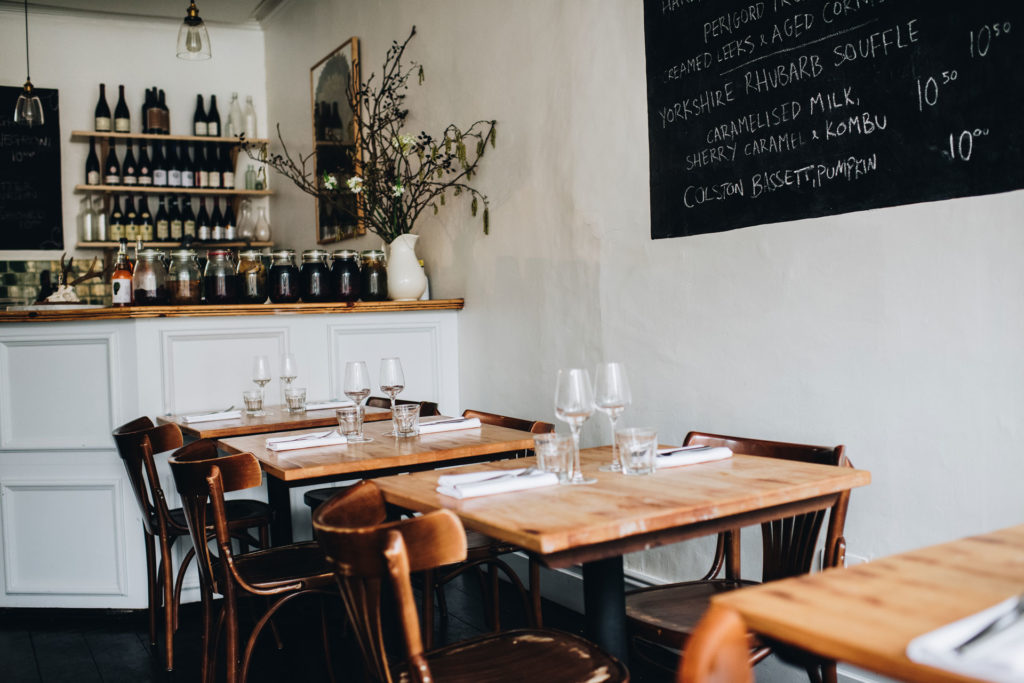 Issy Croker
Issy CrokerWilsons, Bristol
Founded in 2016 by Jan Ostle and Mary Wilson, Wilsons is a neighbourhood restaurant with impressive green credits, having received a Michelin Green Star (as well as a classic Michelin Star). Its own farm – located just seven miles from the restaurant – grows produce for a weekly-changing six-course tasting menu alongside a daily ‘du jour’ set lunch menu. Instead of meeting demand, the farm informs the menu: each week, the Wilsons team – headed up by Jake Garatang (Casamia) and Henry Wadsworth (Le Manoir) – devise it based on what’s growing and ready to be harvested. That could look something like leeks and montgomery with bread, Devonshire scallops with Tokyo turnip and scotch bonnet, and celeriac ice cream with fermented honey.
24 Chandos Rd, Redland, Bristol BS6 6PF; wilsonsbristol.co.uk
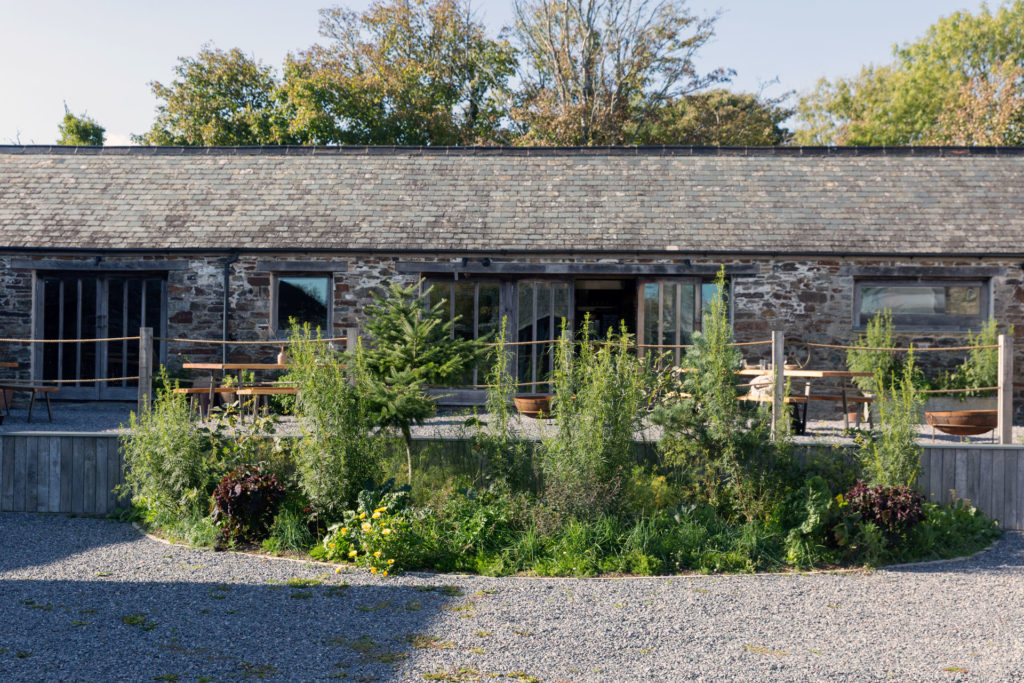
Crocadon, Cornwall
Back in 2017, London-born chef-grower Dan Cox took on a farm in St Mellion, Southeast Cornwall, with dreams of turning it into a self-sufficient, hyper-seasonal restaurant. Five years later, his vision came to life. Crocadon is a restaurant housed within a barn on the farm, designed to celebrate the connection between food and agriculture. A true farm-to-table experience, Crocadon’s dishes are made using the regenerative, organic ingredients Cox has spent years cultivating. Naturally, the menu changes regularly in accordance with what’s being harvested on the farm that week. Dishes are rooted in nature and have a pared-back feel, while at the same time drawing on complex cooking techniques from Cox’s classical training. Fermenting and smoking play a big part, with an open fire and a focus on raw ingredients. Evening guests have a choice of two tasting menus, featuring dishes like Gigantis beans and saddleback pork loin, brown crab and lemongrass, and whey caramel with yoghurt and caramelised apple. On Sundays, meanwhile, a sharing-style slap-up roast is served. And the wine list focuses solely on natural, organic and biodynamic wines from Europe – with plans to add some more West Country varieties in the future.
St Mellion, Saltash PL12 6RL; crocadon.farm
 Peter Lowbridge
Peter LowbridgeThe Orangery, London
True farm-to-table dining is hard to come by in cities, but The Orangery is pioneering an exciting new concept. Just opened in London’s Tottenham Court Road, the site is home to a huge hydroponic farm, which grows fresh produce for the restaurant upstairs. Naturally, the menu will change according to what’s available, but guests can expect dishes like leek and shallot tart, Scottish halibut with sea herb butter, and pasta with organic pesto and Lincolnshire poacher. For an extra special experience, you can book private dining in the chef’s table, located within the farm itself, and tuck into a bespoke tasting menu while surrounded by the very ingredients on your plate.
81 New Oxford St, London WC1A 1DG, orangerytcr.com
You might also like...

Food & Drink
Jimi Famurewa Says The Restaurant Critic Still Matters – ‘Even In An Era Where TikTok Vloggers Are King’By Tessa Dunthorne

